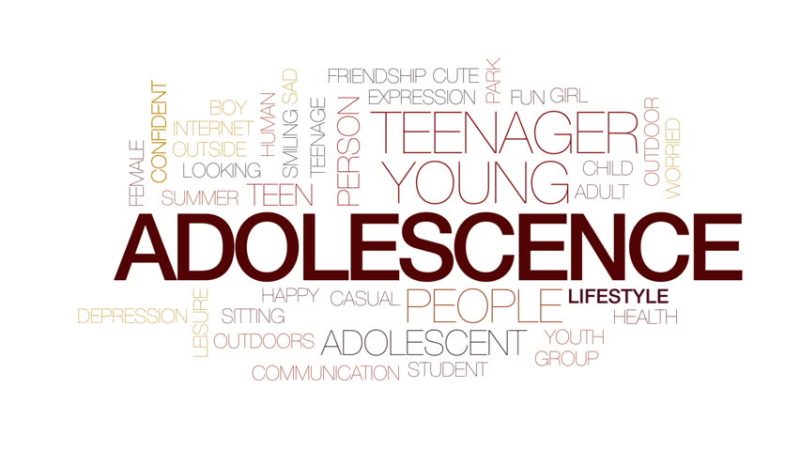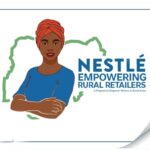By Theresa Moses

Growing up in Jos, Plateau State, as a teenager was one of the best things that happened to me. I had a unique blend of cultural exposure, scenic landscapes and, of course, challenges too. The city’s blend of diverse ethnic nationalities and rich heritage contributed to a vibrant social atmosphere, translating to slogan of ‘home of peace and tourism’.
Navigating through issues like education, social dynamics, and infrastructure presents its peculiar hurdles. The picturesque ambience and the city’s cool weather make it an interesting place to form lasting memories and friendships, which also allows for interaction with various ethnic groups, fostering a sense of unity.
My life as an adolescent involved a mix of education, social activities, and community engagement. I attended a military school that provides a combination of academic and extra-curricular activities. I engaged in outdoor activities and explored the natural beauty of the surroundings. The cool climate also encouraged participation in sports and other physical activities. So it was only natural that Jos produced several prominent football and athletic stars.

In Nigeria, adolescents grapple with a unique set of fears that are a reflection of the challenges and complexities of their environment. Their concerns frequently influence their experiences and objectives, from cultural standards to socio-economic reasons.
As a journalist, I guide my readers into the unfamiliar territory of teenage emotions, in which writing serves as a channel for understanding the complex fabric of adolescent worries. With each pen stroke, I disentangle the nuances of young people’s worries, shedding light on the challenges that are frequently concealed in the background.
Academic success is highly valued in this part of the world, which puts a lot of pressure on teenagers to perform well in school. No doubt, anxiety, stress, and a feeling of inadequacy might emerge from adolescents, especially young girls, who worry that they won’t live up to the expectations imposed on them, which can restrict their choices and aspirations, impacting their sense of self-worth. The need for peer acceptance can result in worries of exclusion as teenagers may feel pressured to follow specific trends or behaviours, frequently at the expense of their true selves.
In pursuit of looking inside the teenage mind, I developed a keen interest in understanding the anxieties that influence adolescents’ lives, especially after spending time researching and speaking with psychologists, teachers, and, most importantly, teenagers themselves. These interactions reveal a world marked by unpredictability, fragility, and the quest for identity.
With a heart attuned to the nuances of adolescent emotions, I turn interviews and stories into narratives that resonate. I spin tales of young people struggling with the daunting transition to maturity as well as scholastic strain, social pressure, and anxieties about their bodies. I also use my medium to create a sense of community among my readers, including teenagers, by sharing these tales and letting them realise they are not alone.

The pen has become a megaphone for voices often silenced by societal norms. It gives a voice to marginalised adolescents, shedding light on the unique fears faced by LGBTQ+ youth, those from disadvantaged backgrounds, and individuals with mental health struggles by validating their experiences and advocating for change.
I’m aware of how important technology is to the lives of today’s teenagers. My forays into the digital world address concerns about online identity, cyber bullying, and the need to adhere to curated online personas. There’s so much to be done by both young people and their guardians on how to use this digital world responsibly.
Moving beyond stereotypes and dispelling myths and misconceptions about adolescent anxieties, the idea that those adolescent worries are trivial or fleeting is dispelled, emphasizing their lasting impact on mental health and overall well-being. It’s time to promote candid conversations that cross generational divides and increase understanding.

Many Nigerian adolescents face economic instability and limited opportunities for employment. The fear of not being able to secure a livelihood or contribute to their families’ well-being can be a constant source of stress.
Recently, at an adolescence and youth event in Lagos, a teenager complained bitterly about the economic situation of the country and how it’s affecting her since her parents are struggling to put food on the table and take care of the family. The same applies to those in regions affected by conflict and violence; for example, in the North East, adolescents face fears of personal safety and the safety of their families. The threat of violence, abduction, or displacement can profoundly impact their mental and emotional well-being.
Teenagers may become fearful of getting sick and vulnerable due to health issues like poor access to healthcare and common diseases like malaria, human papillomavirus (HPV), HIV/AIDS, etc. The absence of early sex education may be a factor in people’s anxieties over sexual health and reproductive issues. I once had an encounter with a promising teenager who was confused about some health issues. She thought cancer would prevent her from having kids and sickle cell anemia patients could never get married or have kids of their own.
Limited access to quality education, healthcare, and employment opportunities can make people anxious about their future. Adolescents from marginalised communities may worry, especially about falling behind and missing out on opportunities for personal growth.
Political instability and social unrest in Nigeria, especially sit-at-home protests, unknown gunmen clashes in the South-east, and the uncertain future of the nation, can evoke fears that may affect adolescents.
Adolescents in Nigeria often navigate the tension between their traditional cultural values and the influence of modern global trends. This internal conflict can create fears of losing their cultural identity while trying to fit into the changing world.
Addressing these fears requires a holistic approach involving parents, educators, community leaders, and policymakers. They can be equipped with the resilience and self-assurance necessary to face these problems by receiving comprehensive education, mentorship, mental health care, and access to safe spaces for expression. By acknowledging and addressing these fears, society can help create an environment where adolescents can thrive and contribute positively to their communities.
It’s time for journalists to write articles extending invitation to parents, educators, and the general public on how to support adolescents through their fears. By fostering communication, empathy, and creating safe spaces for expression, let’s aim to bridge the disconnect that often exists between adults and teenagers, showing their vulnerability. Workshops and seminars for journalists, educators, and mental health professionals are necessary to equip them with the tools to continue this crucial conversation and offer a lifeline of hope to the young hearts navigating the uncertainties of growing up.
Share your story or I Witness Reports with us 24/7 via: SMS/ Whatsapp: +234(0)8072022024, Email: [email protected], follow us on our social media platform: Twitter, Instagram, Facebook:@Gatmash and Subscribe to our YouTube Channel: Gatmash TV.
Gatmash News is one of the most sought- afterb news portals, with increasing audience, exclusive breaking news and reports across the globe. Plus more. Website: https://gatmash.com
For advert placement, contact us today via email: [email protected] or call our hotlines on Tel: +234(0)8072022024





